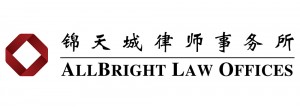An anti-monopoly safe harbour system is a set of legislated market-power thresholds, below which a business operator’s acts are presumed to have a limited effect on eliminating or restricting competition, and thus require no investigation. Introducing a safe harbour system can reserve anti-monopoly enforcement resources for more crucial areas. It also provides clearer guidance to business operators, improving their expectations of the effect of their own operating activities, and reducing compliance costs.
The EU Notice on Agreements of Minor Importance, issued in 2001, provided for a safe harbour system, while the EU’s Vertical Block Exemption Regulation and its accompanying Guidelines on Vertical Restraints, adopted in 2010, are widely regarded as useful tools for self-assessment of vertical agreements. They establish the conditions for applying safe harbour to vertical agreements. On 9 July 2021, the European Commission issued revised drafts of the Vertical Block Exemption Regulation and the Guidelines on Vertical Restraints, making some revisions to existing EU safe harbour rules.
In the Regulations Prohibiting Monopoly Agreement Acts (Draft for Comment) issued in 2019, the State Administration for Market Regulation attempted to introduce a safe harbour system, but deleted that provision from the officially implemented regulations. The Draft for the Amendment of the Anti-Monopoly Law, issued on 23 October 2021, reinstated the safe harbour provision in article 19. This article briefly assesses and analyses article 19 of this draft.
CHINA’S SAFE HARBOUR

Partner
AllBright Law Offices
All regulations or draft regulations for comment – such as the Anti-Monopoly Guidelines of the Anti-Monopoly Committee of the State Council for the Automotive Industry; the Anti-Monopoly Guidelines of the Anti-Monopoly Committee of the State Council for the Intellectual Property Field; the Regulations Prohibiting Monopoly Agreement Acts (Draft for Comment), issued in January 2019 but not yet in effect; and the subsequent draft, not yet in force – have attempted to introduce the safe harbour system, but they vary in scope and conditions of application.
Under the safe harbour system proposed in the above-mentioned draft, where a business operator can demonstrate that its market share in the relevant market does not reach the threshold set by the State Council’s anti-monopoly law enforcement authority, articles 16, 17 and 18 of the law do not apply, unless there is evidence the agreement reached by the business operators eliminates or restricts competition.
ARTICLE 19
The draft’s safe harbour rule is more aggressive than its EU predecessor. Unlike the EU’s safe harbour rule, article 19 of the draft’s rule appears more hardcore in that it can be applied to “hardcore restrictions” such as resale price maintenance, horizontal monopoly agreements, and hub-and-spoke conspiracies. The Anti-Monopoly Guidelines for the Automotive Industry, the Anti-Monopoly Guidelines for the Intellectual Property Field, and the Regulations Prohibiting Monopoly Agreement Acts (Draft for Comment) invariably avoid attacking “hardcore restrictions” or their equivalent monopoly acts, instead striking mostly at other monopoly agreements that originally could have been recognised by the State Council’s anti-monopoly law enforcement authority.

Associate
AllBright Law Offices
In that regard, the safe harbour rule in article 19 of the draft is more aggressive than the provisions above. Legislators should consider whether China’s market and legal system are ready for a more radical safe harbour rule than overseas predecessors.
The safe harbour rule in the draft is more a statement of principle. The safe harbour rule is described in only one sentence in article 19, making it necessary to issue detailed regulations to implement the system. As the economy and society develop, the market-share thresholds may need to be revised occasionally. If the market-share thresholds had been included directly in the draft, it is likely the law would have to be amended regularly. This may be why article 19 expressly leaves it to the State Council’s anti-monopoly law enforcement authority to specify the market-share thresholds to which safe harbour will apply.
When the State Council’s anti-monopoly law enforcement authority specifies the market-share thresholds, the author suggests it should pay attention, at minimum, to:
(1) Setting different market-share thresholds for horizontal monopoly agreements, vertical monopoly agreements, and hub-and-spoke conspiracies. Different monopoly agreements have varying effects on the market, for example, for horizontal monopoly agreements, consideration is generally given to the aggregate market share of the parties in the relevant market, whereas for vertical monopoly agreements, the respective market shares of each party in the market are considered;
(2) As exceptions, certain special sectors or industries should be excluded from the application of the safe harbour rule, or a lower market-share threshold may need to be set;
(3) Special avenues of relief should be established for business operators with market shares that make them eligible to apply for safe harbour, but whose agreements, as demonstrated by evidence, eliminate or restrict competition.
Business operators may find themselves in treacherous waters if, based on the safe harbour rule, they are overconfident that their market shares fall below the threshold, and proceed to engage in monopoly practices. In such circumstances, it may be necessary to specifically provide a special remedy to maintain balance.
Michael Mao is a partner and Alan Yu is an associate at AllBright Law Offices

AllBright Law Offices
11/F and 12/F, Shanghai Tower
No. 501 Yincheng Middle Road
Pudong New Area
Shanghai 200120, China
Contact details:
Tel: +86 21 2051 1000
Fax: +86 21 2051 1999
Email:
www.allbrightlaw.com





















